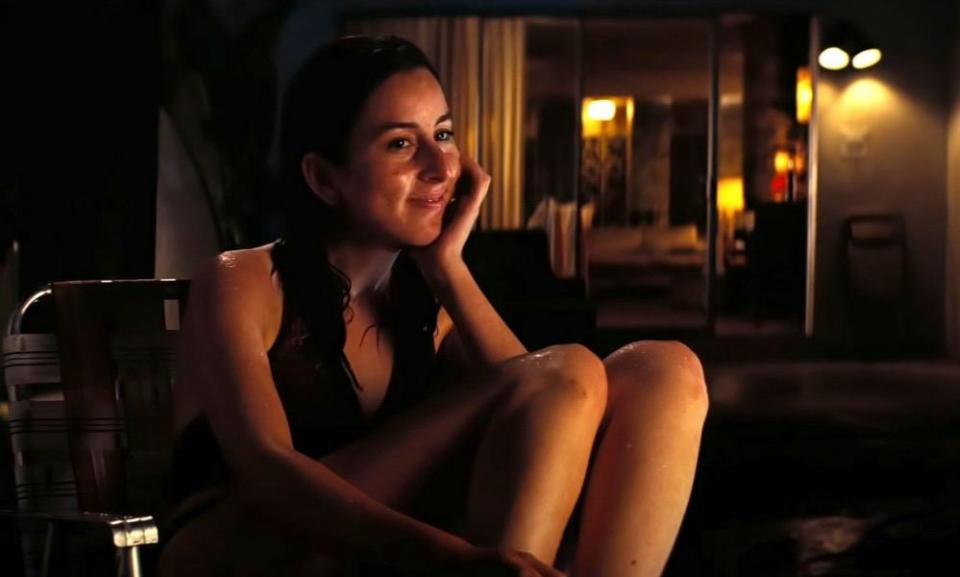Come back award shows – I’m missing the stars like Kristen Stewart
The first mass use of the word “snub” in any given year ushers in award season for me. This year, Kristen Stewart has been snubbed, apparently, after the Screen Actors Guild failed to nominate her for a best actress award for her role as Princess Diana in Pablo Larraín’s Spencer. She had been widely tipped to pick up an Oscar nomination, perhaps for the brazen bizarreness of the casting, which actually sort of worked. If she has been snubbed here, commentators are asking, will she be shut out of the Oscars?
As controversies go, it is a tame one, which speaks volumes about the unsettled state that award ceremonies seem to have found themselves in. I say this as someone with a disproportionate love of these ridiculous events, but even I am finding it difficult to care. Usually, I love the clothes and the speeches and being put out when something I adored is passed over in favour of something objectively worse, and feeling thrilled when Olivia Colman inevitably wins everything, and I love looking out for that precise moment when an actor adjusts their face from “absolutely fuming” to “gracious in defeat”.
But television audiences are declining rapidly, year on year, and award show chatter has become more of a quiet background murmur. Omicron has forced the indefinite postponement of the Grammys. The Golden Globes took place last weekend, untelevised and with no celebrity involvement, after a series of scandals meant any statues it gave out would probably end up in the weird cupboard at the back of the kitchen rather than on the mantelpiece. (I felt for the winners who made history in a year when it was harder to celebrate that, such as Pose’s MJ Rodriguez, who became the first trans woman to win a Golden Globe, for best actress in a TV drama.) The Oscars will have a host after three years without one, though whether that will be Tom Holland or Pete Davidson is the internet’s guess. Anyone to try to stem the tide of fleeing viewers.
It is unsurprising that seeing famous people messing around in ballgowns and designer suits and jewellery that requires its own bodyguards has lost some appeal during two years of a pandemic, but whether world events simply hastened a decline that was already in progress is unclear.
It could be that these ceremonies go the way of the Golden Globes – if a gong is handed out in an empty forest, does anyone hear the tearful acceptance speeches? – and pare back to basics, or this could be a chance to try an over-the-top, full showbiz spectacle once again. I’d prefer the latter. I’d better follow them all closely, just to see.
Elvis Costello: his aim is true in taking that song off his playlist
Elvis Costello has been discussing the lyrical content of his 1979 hit Oliver’s Army for years, and now, he says, he won’t be playing it live any more. It famously uses a derogatory phrase for Irish Catholics, which contains a racial slur. “That’s what my grandfather was called in the British army – it’s historically a fact – but people hear that word go off like a bell and accuse me of something that I didn’t intend,” he told the Telegraph.
This is not the first time the song’s lyrics have led to a discussion about its meaning and intent. In 2013, BBC’s 6 Music radio station censored it, explaining that a number of factors had been taken into consideration, including the time of day and the context of the programme on which it was broadcast. Costello argued that the BBC was making it worse by drawing attention to the lyrics. “Just don’t play the record,” he said.
The song is anti-colonialism and anti-war, so context matters. But Costello has explained it, again and again, and now he has made the decision to retire it. Not to delete it from record collections, just not to sing it live after 43 years.
Some may take that in bad faith and see it as another sign of cancel culture marching on unchecked, but it seems to me like a decision taken in good faith, in consideration of attitudes that have shifted and developed over time. Although often it feels like the opposite, I do think we have become better, collectively, at discussing complex ideas. Applying that to a lyrical choice made so many years ago seems perfectly reasonable.
Licorice Pizza: California heat, in a cinema. What’s not to like?

Finally, after 18 months or so of almost buying tickets and then deciding it probably wasn’t worth it, I went back to the cinema. Even though my only local option is the fancy chain with sofas for seats, which brings food to you at any time – eating burgers while midway through watching a film is an affront to cinemagoing and that is a hill I will die on – I was childishly delighted to be back.
Everything about it, from the ads to the trailers to sitting still for more than two hours without any desire to look at my phone, made me determined to go again regularly.
It was Licorice Pizza that lured me in. As a fan of both Paul Thomas Anderson and sunshine, I thought it would be perfect to head out into the chill of a winter’s evening and then sit in a dark room soaking up the Californian heat. There were plenty of things to take away from the film, but one that seemed particularly lovely was the fact that its leads, Cooper Hoffman and Alana Haim, had beautifully normal teeth. Is this the beginning of the end for those hyper-real, super-straight white veneers?
• Rebecca Nicholson is an Observer columnist


